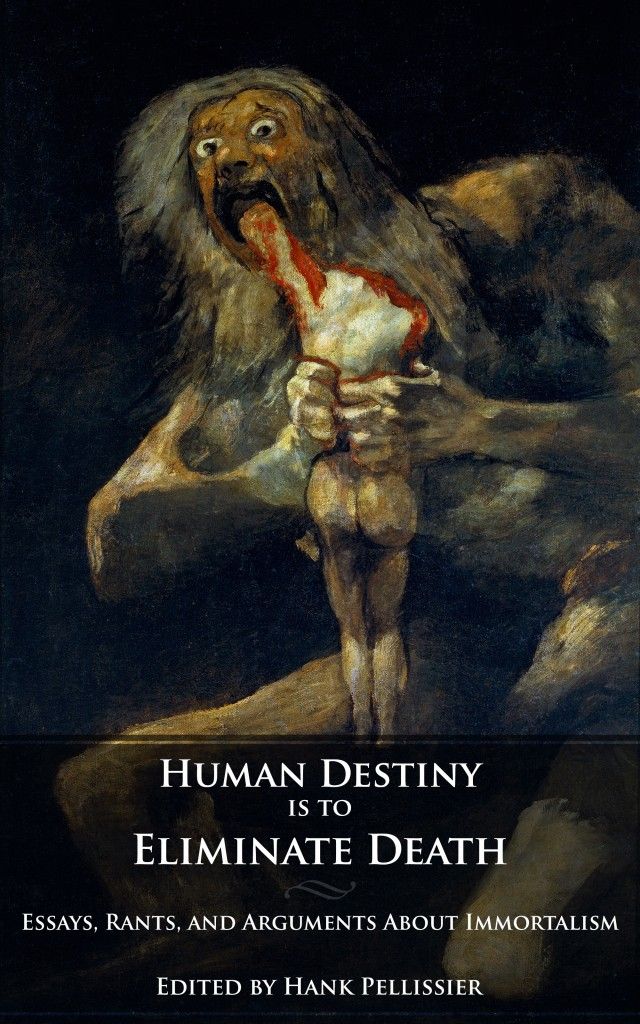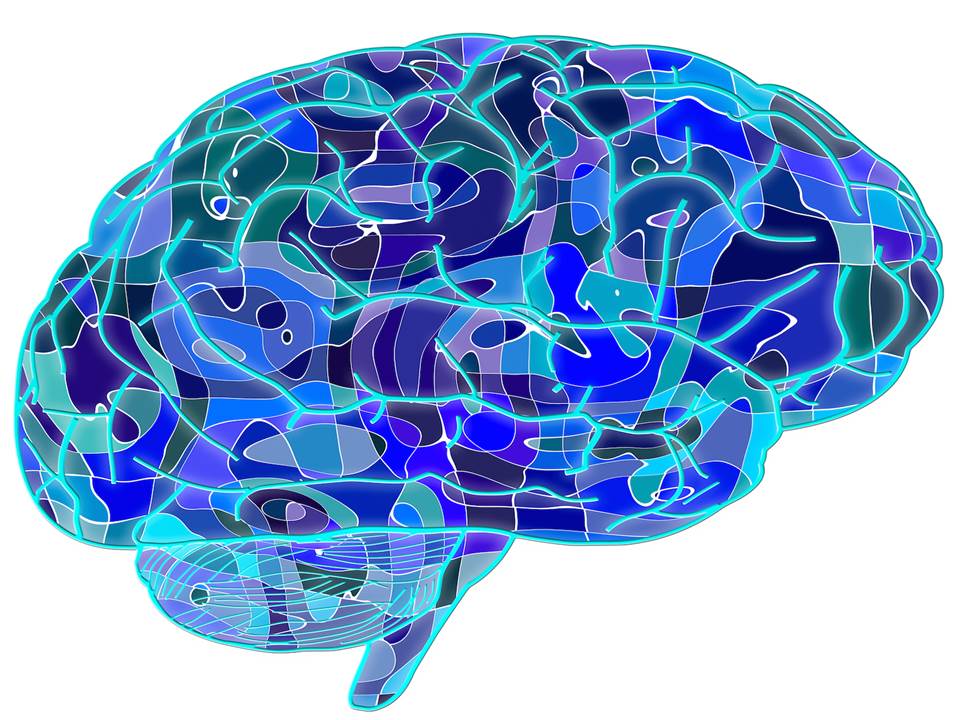
Tag: immortalism


Bringing The Dead Back To Life — Reanima Project / Bioquark Inc. Media Coverage
Fox 29 — Good Day Philadelphia
http://www.fox29.com/140735577-video
NBC TV 10
http://www.nbcphiladelphia.com/news/local/Zombies-from-Phill…65101.html
CNN en Espanol
http://cnnespanol.cnn.com/video/cnnee-encuentro-intvw-joel-o…-cerebral/

Resurrection and Biotechnology
“He is not here; He has risen,” — Matthew 28:6
As billions of Christians around the world are getting ready to celebrate the Easter festival and holiday, we take pause to appreciate the awe inspiring phenomena of resurrection.
In religious and mythological contexts, in both Western and Eastern societies, well known and less common names appear, such as Attis, Dionysus, Ganesha, Krishna, Lemminkainen, Odin, Osiris, Persephone, Quetzalcoatl, and Tammuz, all of whom were reborn again in the spark of the divine.
In the natural world, other names emerge, which are more ancient and less familiar, but equally fascinating, such as Deinococcus radiodurans, Turritopsis nutricula, and Milnesium tardigradum, all of whose abilities to rise from the ashes of death, or turn back time to start life again, are only beginning to be fully appreciated by the scientific world.
In the current era, from an information technology centric angle, proponents of a technological singularity and transhumanism, are placing bets on artificial intelligence, virtual reality, wearable devices, and other non-biological methods to create a future connecting humans to the digital world.
This Silicon Valley, “electronic resurrection” model has caused extensive deliberation, and various factions to form, from those minds that feel we should slow down and understand the deeper implications of a post-biologic state (Elon Musk, Steven Hawking, Bill Gates, the Vatican), to those that are steaming full speed ahead (Ray Kurzweil / Google) betting that humans will shortly be able to “transcend the limitations of biology”.
However, deferring an in-depth Skynet / Matrix discussion for now, is this debate clouding other possibilities that we have forgotten about, or may not have even yet fully considered?
Today, we find ourselves at an interesting point in history where the disciplines of regenerative sciences, evolutionary medicine, and complex systems biology, are converging to give us an understanding of the cycle of life and death, orders of magnitude more complex than only a few years ago.
In addition to the aforementioned species that are capable of biologic reanimation and turning back time, we show no less respect for those who possess other superhuman capabilities, such as magnetoreception, electrosensing, infrared imaging, and ultrasound detection, all of which nature has been optimizing over hundreds of millions of years, and which provide important clues to the untapped possibilities that currently exist in direct biological interfaces with the physical fabric of the universe.
The biologic information processing occurring in related aneural organisms and multicellular colony aggregators, is no less fascinating, and potentially challenges the notion of the brain as the sole repository of long-term encoded information.
Additionally, studies on memory following the destruction all, or significant parts of the brain, in regenerative organisms such as planarians, amphibians, metamorphic insects, and small hibernating mammals, have wide ranging implications for our understanding of consciousness, as well as to the centuries long debate between the materialists and dualists, as to whether we should focus our attention “in here”, or “out there”.
I am not opposed to studying either path, but I feel that we have the potential to learn a lot more about the topic of “out there” in the very near future.
The study of brain death in human beings, and the application of novel tools for neuro-regeneration and neuro-reanimation, for the first time offer us amazing opportunities to start from a clean slate, and answer questions that have long remained unanswered, as well as uncover a knowledge set previously thought unreachable.
Aside from a myriad of applications towards the range of degenerative CNS indications, as well as disorders of consciousness, such work will allow us to open a new chapter related to many other esoteric topics that have baffled the scientific community for years, and fallen into the realm of obscure curiosities.
From the well documented phenomena of terminal lucidity in end stage Alzheimer’s patients, to the mysteries of induced savant syndrome, to more arcane topics, such as the thousands of cases of children who claim to remember previous lives, by studying death, and subsequently the “biotechnological resurrection” of life, we can for the first time peak through the window, and offer a whole new knowledge base related to our place, and our interaction, with the very structure of reality.
We are entering a very exciting era of discovery and exploration.
About the author
Ira S. Pastor is the Chief Executive Officer of Bioquark Inc. (www.bioquark.com), an innovative life sciences company focusing on developing novel biologic solutions for human regeneration, repair, and rejuvenation. He is also on the board of the Reanima Project (www.reanima.tech)

Human Destiny is to Eliminate Death — Essays, Rants & Arguments on Immortalism (Edited Volume)
Immortal Life has complied an edited volume of essays, arguments, and debates about Immortalism titled Human Destiny is to Eliminate Death from many esteemed ImmortalLife.info Authors (a good number of whom are also Lifeboat Foundation Advisory Board members as well), such as Martine Rothblatt (Ph.D, MBA, J.D.), Marios Kyriazis (MD, MS.c, MI.Biol, C.Biol.), Maria Konovalenko (M.Sc.), Mike Perry (Ph.D), Dick Pelletier, Khannea Suntzu, David Kekich (Founder & CEO of MaxLife Foundation), Hank Pellissier (Founder of Immortal Life), Eric Schulke & Franco Cortese (the previous Managing Directors of Immortal Life), Gennady Stolyarov II, Jason Xu (Director of Longevity Party China and Longevity Party Taiwan), Teresa Belcher, Joern Pallensen and more. The anthology was edited by Immortal Life Founder & Senior Editor, Hank Pellissier.
This one-of-a-kind collection features ten debates that originated at ImmortalLife.info, plus 36 articles, essays and diatribes by many of IL’s contributors, on topics from nutrition to mind-filing, from teleomeres to “Deathism”, from libertarian life-extending suggestions to religion’s role in RLE to immortalism as a human rights issue.
The book is illustrated with famous paintings on the subject of aging and death, by artists such as Goya, Picasso, Cezanne, Dali, and numerous others.
The book was designed by Wendy Stolyarov; edited by Hank Pellissier; published by the Center for Transhumanity. This edited volume is the first in a series of quarterly anthologies planned by Immortal Life
Find it on Amazon HERE and on Smashwords HERE
This Immortal Life Anthology includes essays, articles, rants and debates by and between some of the leading voices in Immortalism, Radical Life-Extension, Superlongevity and Anti-Aging Medicine.
A (Partial) List of the Debaters & Essay Contributors:
Martine Rothblatt Ph.D, MBA, J.D. — inventor of satellite radio, founder of Sirius XM and founder of the Terasem Movement, which promotes technological immortality. Dr. Rothblatt is the author of books on gender freedom (Apartheid of Sex, 1995), genomics (Unzipped Genes, 1997) and xenotransplantation (Your Life or Mine, 2003).
Marios Kyriazis MD, MSc, MIBiol, CBiol. founded the British Longevity Society, was the first to address the free-radical theory of aging in a formal mainstream UK medical journal, has authored dozens of books on life-extension and has discussed indefinite longevity in 700 articles, lectures and media appearances globally.
Maria Konovalenko is a molecular biophysicist and the program coordinator for the Science for Life Extension Foundation. She earned her M.Sc. degree in Molecular Biological Physics at the Moscow Institute of Physics and Technology. She is a co-founder of the International Longevity Alliance.
Jason Xu is the director of Longevity Party China and Longevity Party Taiwan, and he was an intern at SENS.
Mike Perry, PhD. has worked for Alcor since 1989 as Care Services Manager. He has authored or contributed to the automated cooldown and perfusion modeling programs. He is a regular contributor to Alcor newsletters. He has been a member of Alcor since 1984.
David A. Kekich, Founder, President & C.E.O Maximum Life Extension Foundation, works to raise funds for life-extension research. He serves as a Board Member of the American Aging Association, Life Extension Buyers’ Club and Alcor Life Extension Foundation Patient Care Trust Fund. He authored Smart, Strong and Sexy at 100?, a how-to book for extreme life extension.
Eric Schulke is the founder of the Movement for Indefinite Life Extension (MILE). He was a Director, Teams Coordinator and ran Marketing & Outreach at the Immortality Institute, now known as Longecity, for 4 years. He is the Co-Managing Director of Immortal Life.
Hank Pellissier is the Founder & Senior Editor of ImmortaLife.info. Previously, he was the founder/director of Transhumanity.net. Before that, he was Managing Director of the Institute for Ethics and Emerging Technology (ieet.org). He’s written over 120 futurist articles for IEET, Hplusmagazine.com, Transhumanity.net, ImmortalLife.info and the World Future Society.
Franco Cortese is on the Advisory Board for Lifeboat Foundation on their Scientific Advisory Board (Life-Extension Sub-Board) and their Futurism Board. He is the Co-Managing Director alongside of Immortal Life and a Staff Editor for Transhumanity. He has written over 40 futurist articles and essays for H+ Magazine, The Institute for Ethics & Emerging Technologies, Immortal Life, Transhumanity and The Rational Argumentator.
Gennady Stolyarov II is a Staff Editor for Transhumanity, Contributor to Enter Stage Right, Le Quebecois Libre, Rebirth of Reason, Ludwig von Mises Institute, Senior Writer for The Liberal Institute, and Editor-in-Chief of The Rational Argumentator.
Brandon King is Co-Director of the United States Longevity Party.
Khannea Suntzu is a transhumanist and virtual activist, and has been covered in articles in Le Monde, CGW and Forbes.
Teresa Belcher is an author, blogger, Buddhist, consultant for anti-aging, life extension, healthy life style and happiness, and owner of Anti-Aging Insights.
Dick Pelletier is a weekly columnist who writes about future science and technologies for numerous publications.
Joern Pallensen has written articles for Transhumanity and the Institute for Ethics and Emerging Technologies.
CONTENTS:
Editor’s Introduction
DEBATES
1. In The Future, With Immortality, Will There Still Be Children?
2. Will Religions promising “Heaven” just Vanish, when Immortality on Earth is attained?
3. In the Future when Humans are Immortal — what will happen to Marriage?
4. Will Immortality Change Prison Sentences? Will Execution and Life-Behind-Bars be… Too Sadistic?
5. Will Government Funding End Death, or will it be Attained by Private Investment?
6. Will “Meatbag” Bodies ever be Immortal? Is “Cyborgization” the only Logical Path?
7. When Immortality is Attained, will People be More — or Less — Interested in Sex?
8. Should Foes of Immortality be Ridiculed as “Deathists” and “Suicidalists”?
9. What’s the Best Strategy to Achieve Indefinite Life Extension?
ESSAYS
1. Maria Konovalenko:
I am an “Aging Fighter” Because Life is the Main Human Right, Demand, and Desire
2. Mike Perry:
Deconstructing Deathism — Answering Objections to Immortality
3. David A. Kekich:
How Old Are You Now?
4. David A. Kekich:
Live Long… and the World Prospers
5. David A. Kekich:
107,000,000,000 — what does this number signify?
6. Franco Cortese:
Religion vs. Radical Longevity: Belief in Heaven is the Biggest Barrier to Eternal Life?!
7. Dick Pelletier:
Stem Cells and Bioprinters Take Aim at Heart Disease, Cancer, Aging
8. Dick Pelletier:
Nanotech to Eliminate Disease, Old Age; Even Poverty
9. Dick Pelletier:
Indefinite Lifespan Possible in 20 Years, Expert Predicts
10. Dick Pelletier:
End of Aging: Life in a World where People no longer Grow Old and Die
11. Eric Schulke:
We Owe Pursuit of Indefinite Life Extension to Our Ancestors
12. Eric Schulke:
Radical Life Extension and the Spirit at the core of a Human Rights Movement
13. Eric Schulke:
MILE: Guide to the Movement for Indefinite Life Extension
14. Gennady Stolyarov II:
The Real War and Why Inter-Human Wars Are a Distraction
15. Gennady Stolyarov II:
The Breakthrough Prize in Life Sciences — turning the tide for life extension
16. Gennady Stolyarov II:
Six Libertarian Reforms to Accelerate Life Extension
17. Hank Pellissier:
Wake Up, Deathists! — You DO Want to LIVE for 10,000 Years!
18. Hank Pellissier:
Top 12 Towns for a Healthy Long Life
19. Hank Pellissier:
This list of 30 Billionaires — Which One Will End Aging and Death?
20. Hank Pellissier:
People Who Don’t Want to Live Forever are Just “Suicidal”
21. Hank Pellissier:
Eluding the Grim Reaper with 23andMe.com
22. Hank Pellissier:
Sixty Years Old — is my future short and messy, or long and glorious?
23. Jason Xu:
The Unstoppable Longevity Virus
24. Joern Pallensen:
Vegetarians Live Longer, Happier Lives
25. Franco Cortese:
Killing Deathist Cliches: Death to “Death-Gives-Meaning-to-Life”
26. Marios Kyriazis:
Environmental Enrichment — Practical Steps Towards Indefinite Lifespans
27. Khannea Suntzu:
Living Forever — the Biggest Fear in the most Audacious Hope
28. Martine Rothblatt:
What is Techno-Immortality?
29. Teresa Belcher:
Top Ten Anti-Aging Supplements
30. Teresa Belcher:
Keep Your Brain Young! — tips on maintaining healthy cognitive function
31. Teresa Belcher:
Anti-Aging Exercise, Diet, and Lifestyle Tips
32. Teresa Belcher:
How Engineered Stem Cells May Enable Youthful Immortality
33. Teresa Belcher:
Nanomedicine — an Introductory Explanation
34. Rich Lee:
“If Eternal Life is a Medical Possibility, I Will Have It Because I Am A Tech Pirate”
35. Franco Cortese:
Morality ==> Immortality
36. Franco Cortese:
Longer Life or Limitless Life?
Killing Deathist Cliches: “Death Gives Meaning to Life” is Meaningless!
Le Petit Trépas
One common argument against Radical Life Extension is that a definitive limit to one’s life – that is, death – provides some essential baseline reference, and that it is only in contrast to this limiting factor that life has any meaning at all. In this article I refute the argument’s underlying premises, and then argue that even if such premises were taken as true, its conclusion – that eradicating death would negate the “limiting factor” that legitimizes life — is also invalid.
Death gives meaning to life? No! Death makes life meaningless!
One version of the argument, which I’ve come across in a variety of places, is given in Brian Cooney’s Posthuman, an introductory philosophical text that uses various futurist scenarios and concepts to illustrate the broad currents of Western Philosophy. Towards the end he makes his argument against immortality, claiming that if we had all the time in the universe to do what we wanted, then we wouldn’t do anything at all. Essentially, his argument boils down to ‘if there is no possibility of not being able to do something in the future, then why would we ever do it?”.
This assumes that we make actions on the basis of not being able to do them again. But people don’t make decisions this way. We didn’t go out to dinner because the restaurant was closing down… we went out for dinner because we wanted to go out for dinner… I think that Cooney’s version of the argument is naïve. We don’t make the majority of our decisions by contrasting an action to the possibility of not being able to do it in future.
His argument seems to be that if there were infinite time then we would have no way of prioritizing our actions. If we had a list of all possible actions set before us, and time were limitless, we might (according to his logic) accomplish all the small, negligible things first, because they’re easier and all the hard things can wait. If we had all the time in the world, we would have no reference point with which to judge how important a given action or objective is, which ones it is most important to get done, and which ones should get done in the place of other possibilities. If we really can do every single thing on that listless list, then why bother, if each is as important as every other? In his line-of-reasoning, importance requires scarcity. If we can do everything it were possible to do, then there is nothing that determines one thing as being more important than another. A useful analogy might be that current economic definitions of value require scarcity. If everything were as abundant as everything else, if nothing were scarce, then we would have no way of ascribing economic value to a given thing, such that one thing has more economic value than another. What we sometimes forget is that ecologies aren’t always like economies.
Seethe of Sooth and Teethe of Truth
Where could this strange notion have come from? That death would give meaning to life… Is it our intuitions, having picked up on the fact that we usually draw conclusions and make final and definitive interpretations when a given thing is finished (e.g. we wait until the book is done before we decide whether it was good or bad)? Is it because we feel that lives, much like stories, need a definitive end to be true, and that something must be true to matter?
Could this (at least partly) come from the long philo-socio-historical tradition of associating truth and meaning with staticity and non-change? It makes seeming sense that we would rather truth not be squirming around on our hand while we’re looming for a better view. If truth is stillborn and stable, then we can make pronouncements we feel won’t dissipate as soon as they’ve left the tongue. If truth is motionless, then we might just be able to get a handle on it. If it’s running about like a wild animal, then any attempt to make or to discover truth might be murdered remorselessly by truth’s newest transformation. Corpses are easier to keep canned in ken than runny kids, after all.
If something can go on towards infinity then there is no time that it will stop moving, no time it will come definitively to rest and say ‘I am this.’ If we don’t have an end to curtail the reverse-comet-tail of our foreward rail, no last-exit exhale, never to come to rest so as to rest in one definitive piece, then we won’t ever be static enough to fit this vile definition of truth-as-staticity. This rank association of truth with being-at-rest has infected our very language: thus to go in a straight line without wavering is to keep true.
So this memetic foray has yielded a possible line-of-conceptual-association. We must have an end to be still, we must be still to have truth, and we must have truth to matter at all. Perhaps. There is no telling without a look at the till, and unfortunately it’s been taken by the wind.
If truth is that which does in fact exist, if truth is existence, then they’ve committed a dire irony by grounding truth in ground instead of sky, in the ironed smock instead of wrinkled frock, and by locating truth-as-existence in stillbirth and death so ill as to be still as still can be. If truth is life and life is motion, then how can truth be motionless death? They forget that their hard iron ore once flowed molten-bright and ductile enough to be pushed by oar.
It also makes slick and seemly sense, on the sheen of the surface at least, that we’ve associated change with death and the negation of truth. What once was is no more — and change is the culprit. Disintegration, destruction, death and the rank rot of fetid flesh all use change as their conduit. What they’ve failed to see is that so too with life, which acts solely through change. They’ve mistaken upheaval for removal, forgetting that to be we heave by the second as we breathe unbeckoned. Death only seems to require change because it’s still life until the very end. Life is change, life is motion, and death, when finally finished, is just the opposite.
In any case, they are wrong. Life doesn’t need limitation to get its hard-sought legitimation. Life is its own baseline and reference point. Death is a negation of life, taking all and leaving but the forsaken debris strewn by your wakeup quake.
High-Digger’s Being is Time Timing Itself
Another version of the “limiting factor” argument comes from Martin Heidegger, in his massive philosophical work Being and Time.
In the section being-toward-death he claims, on one level, that Being must be a totality, and in order to be a totality (in the sense of absolute or not containing anything outside of itself) it must also be that which it is not. Being can only become what it is not through death and so in order for Being to become a totality (which he argues it must in order to achieve authenticity – which is the goal all along, after all) it must become what it is not — that is, death — for completion. This reinforces some interpretations made above in linking truth with completion and completion with staticity.
Another line of reasoning taken by Heidegger seems to reinforce the interpretation made by Cooney, which was probably influenced heavily by Heidegger’s concept of being-toward-death. The “fact” that we will one day die causes Being to reevaluate itself, realize that it is time and time is finite, and that its finitude requires it to take charge of its own life — to find authenticity. Finitude for Heidegger legitimizes our freedom. If we had all the time in the world to become authentic, then what’s the point? It can always be deferred. But if our time is finite then the choice of whether to achieve authenticity or not falls in our own hands. Since we must make choices on how to spend our time, failing and to become authentic by spending one’s time on actions that don’t help achieve authenticity becomes our fault.
To be philosophically scrupulous would involve dissecting Heidegger’s mammoth Being and Time, and that is beyond the scope of this essay. Anyone who thinks I’ve misinterpreted Heidegger, or who thinks that Heidegger’s concept of Being-Towards-Death warrants a fuller explication that what it’s been given here, is encouraged to comment.
Can Limitless Life still have a “Filling Stillness” and “Legitimizing Li’mit”?
Perhaps more importantly, even if their premises were correct (i.e. that the “change” of death adds some baseline limiting factor, causing you to do what you would have not if you had all the time in the world, and thereby constituting our main motivator for motion and metric for meaning) they are still wrong in the conclusion that indefinitely-extended life would destroy or jeopardize this “essential limitation”.
The crux of the “death-gives-meaning-to-life” argument is that life needs scarcity, finitude or some other factor restricting the possible choices that could be made, in order to find meaning. But final death need not be the sole candidate for such a restricting factor.
Self: Le Petite Mort
All changed, changed utterly… A terrible beauty is born. The self sways by the second. We are creatures of change, and in order to live we die by the moment. I am not the same as I once was, and may never be the same again. The choices we prefer and the decisions we are most likely to make go through massive upheaval.
The changing self could constitute this “scarcitizing” or limiting factor just as well as death could. We can be compelled to prioritize certain choices and actions over others because we might be compelled to choose differently in another year, month or day. We never know what we will become, and this is a blessing. Life itself can act as the limiting factor that, for some, legitimizes life.
Society: Le Petite Fin Du Monde
Society is ever on an s-curve swerve of consistent change as well. Culture is in constant upheaval, with new opportunity’s opening upward all the time. Thus the changing state of culture and humanity’s upheaved hump through time could act as this “limiting factor” just as well as death or the changing self could. What is available today may be gone tomorrow. We’ve missed our chance to see the Roman Empire at its highest point, to witness the first Moon landing, to pioneer a new idea now old. Opportunities appear and vanish all the time.
Indeed, these last two points – that the changing state of self and society, together or singly, could constitute such a limiting factor just as effectively as death could – serve to undermine another common argument against the desirability of limitless life (boredom) – thereby killing two inverted phoenixes with one stoning. Too often is this rather baseless claim bandied about as a reason to forestall RLE – that longer life will lead to increased boredom. That self and society are in a constant state of change means that boredom should become increasingly harder to maintain. We are on the verge of our umpteenth rebirth, and the modalities of being that are set to become available to us, as selves and as societies, will ensure that the only way to entertain the notion of increased boredom will be to personally hard-wire it into ourselves.
Life gives meaning to life, dummy!
Death is nothing but misplaced waste, and I think it’s time to take out the trash, with haste. We don’t need death to make certain opportunities more pressing than others, or to allow us to assign higher priorities to one action than we do to another. The change underlying life’s self-overcoming will do just fine, thank you.
This article was originally published by Transhumanity







